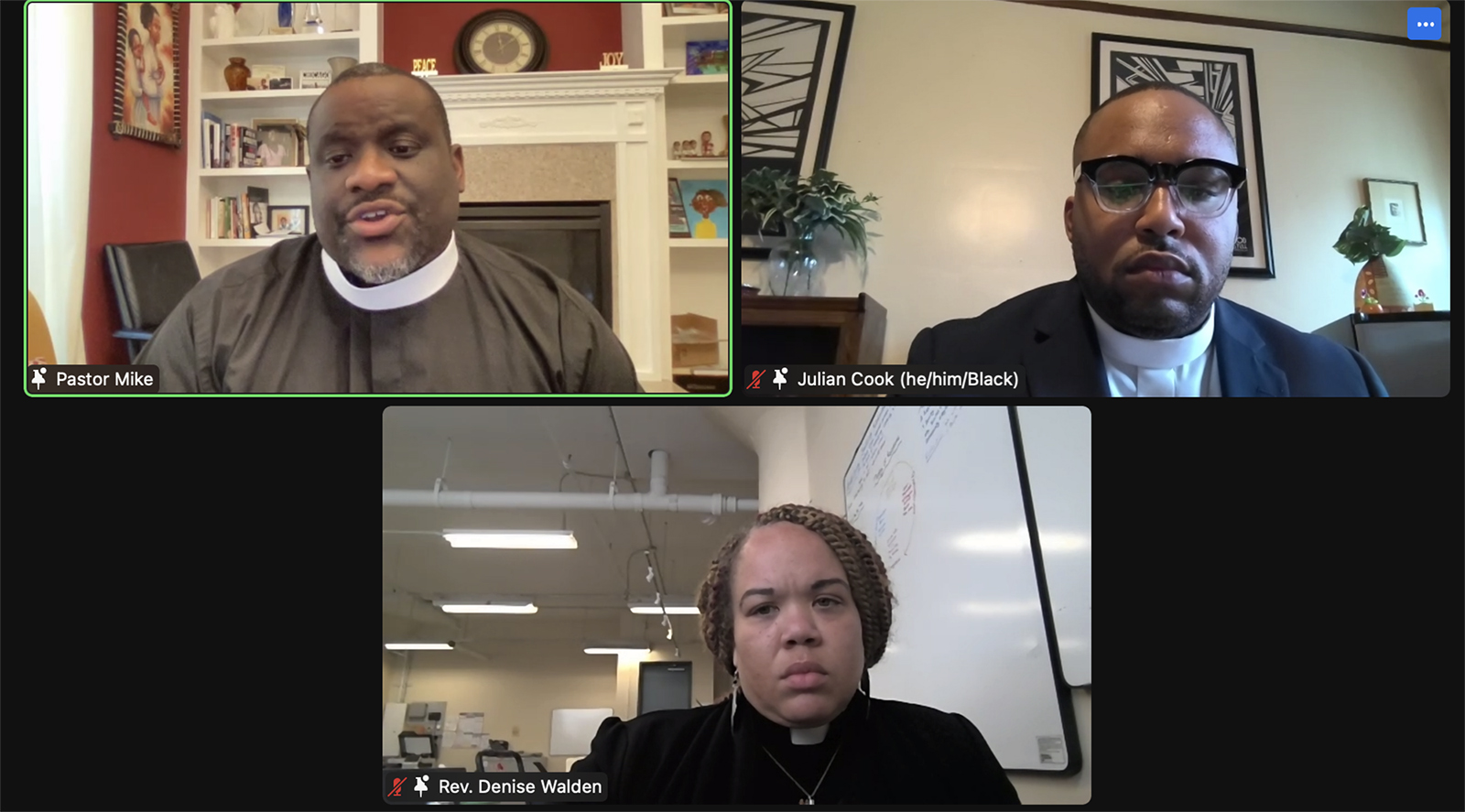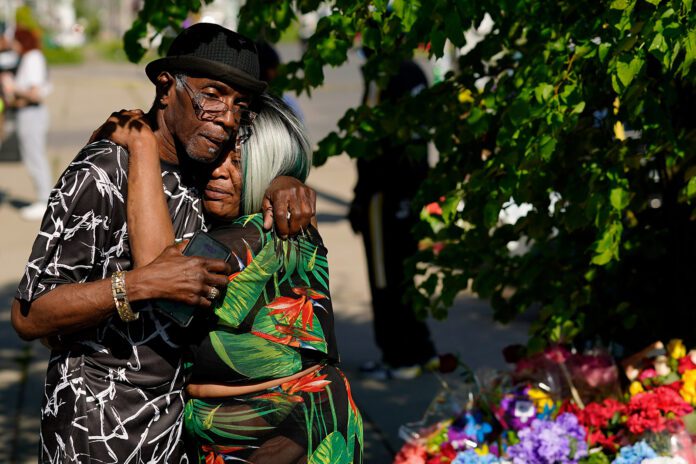(RNS) — Soon after a white 18-year-old shooter targeted Black customers of a community grocery store in Buffalo, New York, on Saturday (May 14), the Rev. Denise Walden, executive director of Voice Buffalo, a social justice and equity organization, was coordinating clergy to offer grief counseling and help families immediately and, she hopes, for the foreseeable future.
She was also grieving personally: She knows the families of most of the 10 people killed in the massacre.
“This is going to take more than a week, more than a month, more than six months,” said Walden, a member of the clergy team at First Calvary Missionary Baptist Church, a predominantly Black congregation in Buffalo. “We need long-term solutions and support.”
Walden’s 25-year-old organization is a local chapter of Live Free, a Christian organization that has in recent years focused on preventing community violence, which now has new questions to answer, Walden said, about “the hate that caused this person to come into this community and create such a horrible, violent violation to our community.”
She said more resources are needed to counter hate in general and to cope with the reaction from Buffalo’s Black community. “When tragedy strikes and those things are not in place,” Walden said, “we create an environment that can become even more dangerous because people don’t know what to do to process their grief and their trauma.”
Walden, 42, spoke with Religion News Service about her connections to the people who died on Buffalo’s East Side, who the community has lost and what it needs now.
The interview has been edited for length and clarity.

Pastor Mike McBride, clockwise from top left, executive director of Live Free, the Rev. Julian Cook, of Macedonia Baptist Church in Buffalo, and the Rev. Denise Walden, executive director of Voice Buffalo, were among dozens taking part in a virtual Live Free “Buffalo Healing Space” event on Monday, May 16, 2022. Video screen grab
The massacre on Saturday occurred at a grocery store in your neighborhood. How did you react to the violence that happened there?
I’m a seven-minute walk away from the grocery store. It’s our community store. We’re there regularly. As far as how I reacted, I think I’m still trying to figure that out. For me it was, how do I show up with and in my community, just being a resource and, hopefully, a person to bring some peace and love that are all much needed in this time. And just being as comforting to those who are closest to the pain from this as possible.
You were one of the officiants of a vigil on Sunday outside the Tops grocery store. What words did you find to say?
It was hard. I think we know that there’s a need for comfort. There’s a need for love in our community. And that was the word, reminding people that we are still a strong community; reminding those of us that live here that in spite of this heinous act that we’ve seen, this is still home. This is our home.
You helped notify family members of those who were killed. Was that an unexpected responsibility or have you done that in the past?
That is definitely an unexpected responsibility. I’ve done little bits of it in my clergy capacity. For our organization it’s completely different and completely new. And I’ve never had to show up that way in something so tragic, and also something that is so closely impacting me as well.

